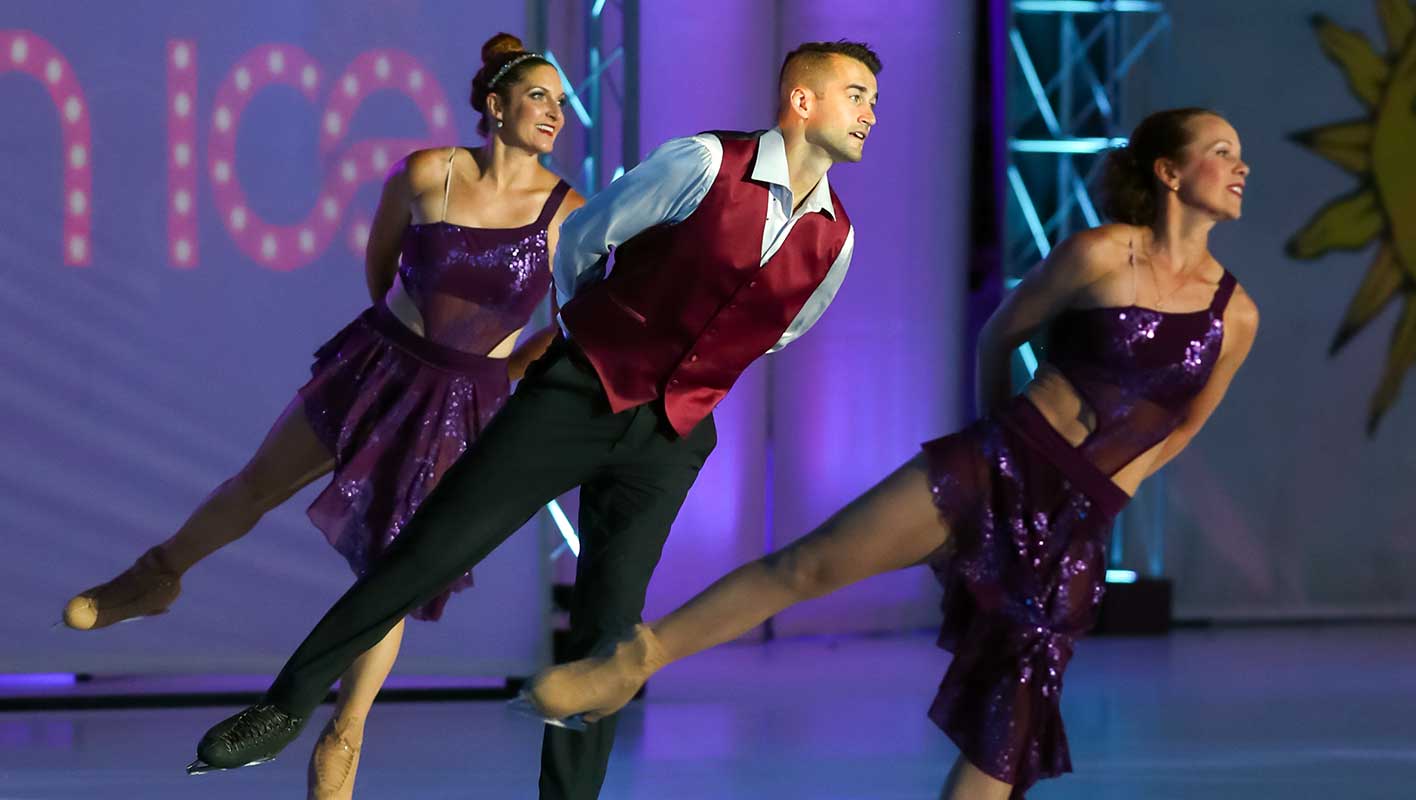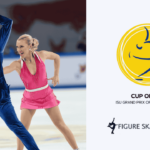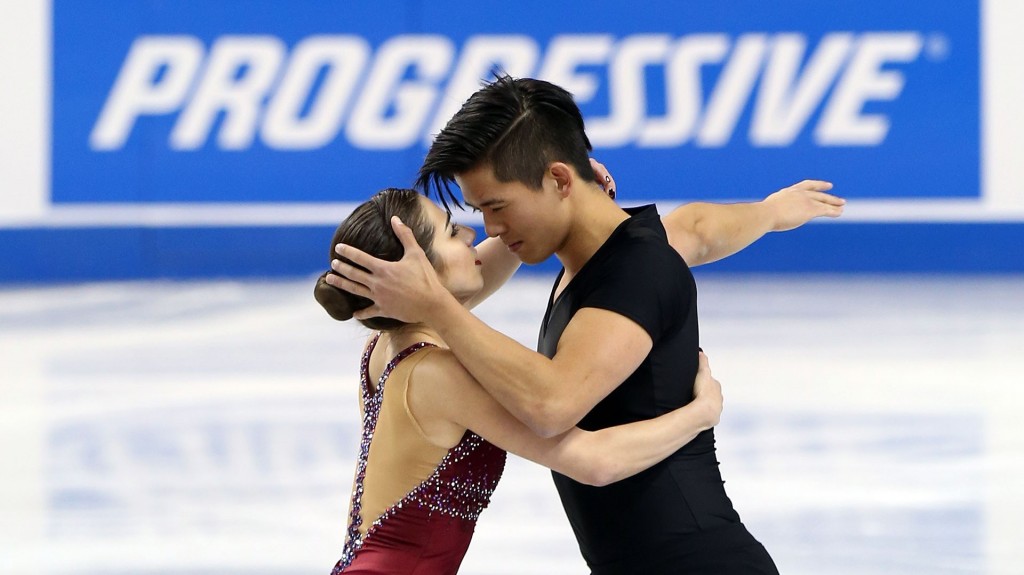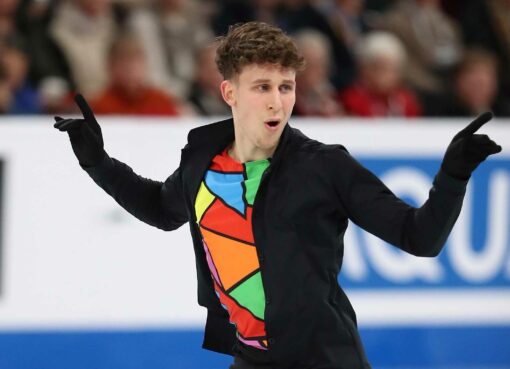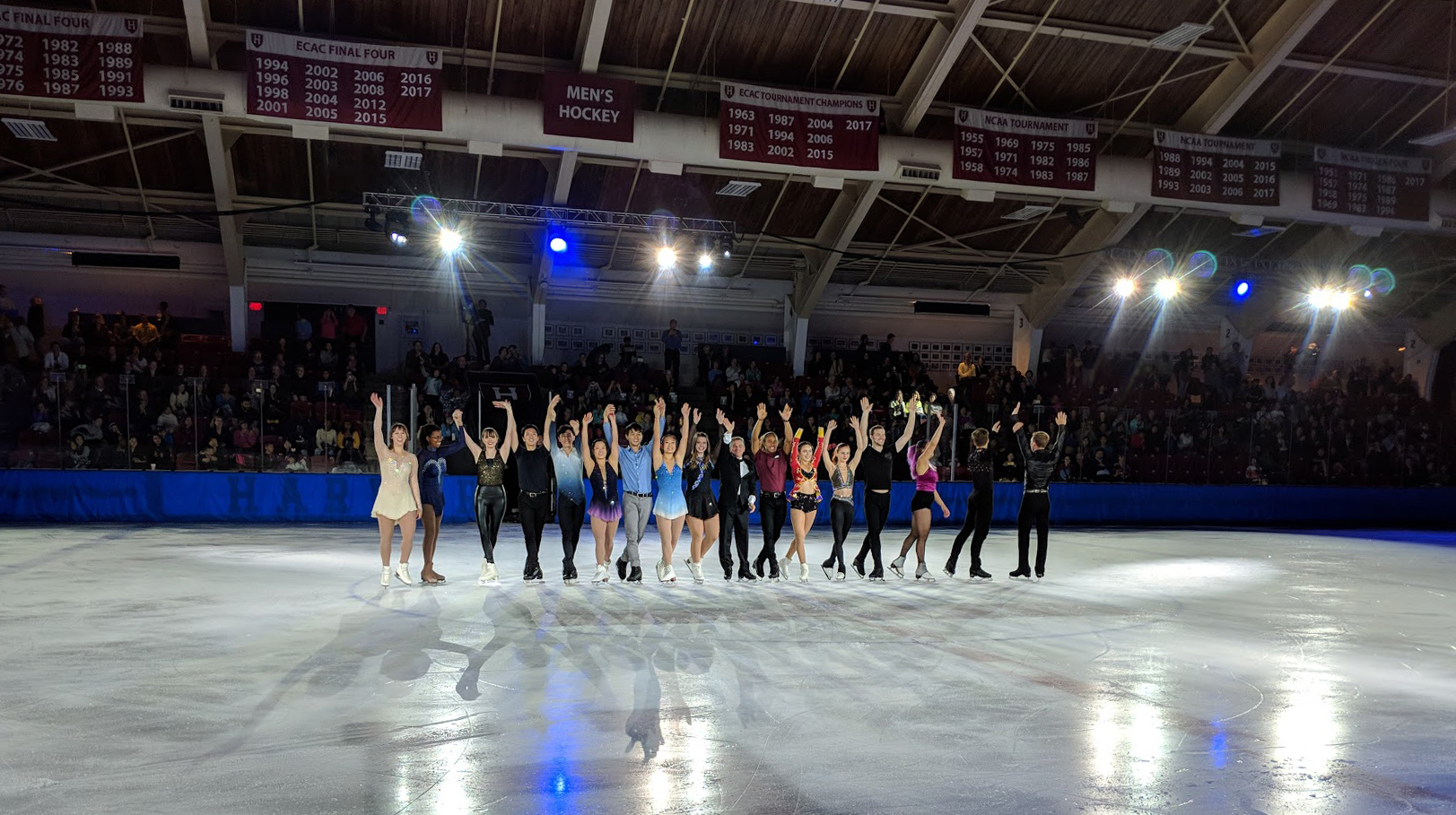By Maura Sullivan Hill, Team FSO contributing writer
Photos by Melanie Heaney from Sun Valley
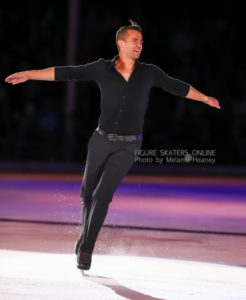 2011 U.S. Champion Ryan Bradley skated in his first fundraiser for the Scott Hamilton CARES Foundation in Cleveland in 2010, when he was still competing. Now, 14 years later, he’s still on the ice performing and coaching — and still supporting fundraising for cancer research with Hamilton’s foundation. 2024 marks the 8th annual Scott Hamilton and Friends show at Bridgestone Arena in Nashville, and Bradley estimates he’s performed in all but one of those shows.
2011 U.S. Champion Ryan Bradley skated in his first fundraiser for the Scott Hamilton CARES Foundation in Cleveland in 2010, when he was still competing. Now, 14 years later, he’s still on the ice performing and coaching — and still supporting fundraising for cancer research with Hamilton’s foundation. 2024 marks the 8th annual Scott Hamilton and Friends show at Bridgestone Arena in Nashville, and Bradley estimates he’s performed in all but one of those shows.
The annual event raises money for Hamilton’s foundation with the show at Bridgestone and a post-event fundraising dinner. The show pairs live musical performances with skating, and this year’s event will feature holiday music.
The performance will be co-hosted by Hamilton and Matt Iseman, a Daytime Emmy Award-winning host and standup comedian. The musical acts taking the stage include CeCe Winans, the most-awarded female Gospel artist in history; Steven Curtis Chapman, a five-time Grammy Award winner; The Isaaacs, a bluegrass and Southern Gospel group; Jason Derlatka, keyboardist and composer for pop music, advertising, and TV series; and Charles Esten, a singer/songwriter who also starred in the TV series “Nashville.”
On the ice, the cast will feature four-time World Champion Kurt Browning; two-time Olympic Champion Katia Gordeeva; Canadian international competitor Elladj Baldé; Olympians Kaitlin Hawayek and Jean-Luc Baker; Olympic Bronze Medalist and World Champion Kaetlyn Osmond; four-time U.S. Champion and Olympic Team Bronze Medalist Jeremy Abbott; two-time Olympians and World medalists Kaitlyn Weaver & Andrew Poje; Olympian and two-time U.S. Champion Gracie Gold; Olympian and two-time Canadian National Champion Keegan Messing; Olympian and U.S. Champion Mariah Bell; two-time U.S. Champion Alissa Czisny; U.S. Champion Ryan Bradley; and 2024 U.S. Pair Champions Ellie Kam and Danny O’Shea.
Abbott will also serve as the show’s choreographer for group numbers.
We caught up with Bradley the day before he flew to Nashville to start rehearsals for the show. Hear about why he’s supported the Scott CARES Foundation since 2010, and what his performing and coaching life is like these days, in our Q&A:
Answers have been edited and condensed for clarity.
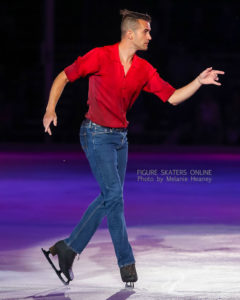 FSO: What song will you be performing to in the show?
FSO: What song will you be performing to in the show?
Bradley: “We’re doing Christmas music this year, so I’m skating to ‘Baby Please Come Home.’”
FSO: What is it like to perform with the live musicians? How does that differ from other shows you skate in?
Bradley: “There’s definitely pros and cons to it. The energy of it, when the music’s playing live, is really cool, right? It just gets you in the vibe of things and makes you feel a little more pressure. That part’s great. The tricky parts are when the arrangement changes right before you skate, or if the cadence changes. I remember years and years ago, I did a show — this never happened in one of Scott’s shows — I did a show with a band and I just heard the drummer set the cadence at the beginning of the song, and it was nearly half time of what it normally is. So my three-minute program ended up being five minutes-plus! I’ve been very fortunate with the artists Scott has given me over the years.”
FSO: What are you most looking forward to about show day?
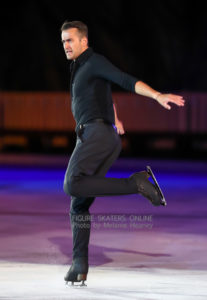 Bradley: “For me, it’s the camaraderie. We’ve got so many of these skaters that I’ve done shows with forever. I’ve done shows with Katia Gordeeva basically since the moment I retired, before that, even. We build these relationships with people, and you get so close, and when you’re not touring, you don’t see them very often. So being able to see everyone, to see Scott, being able to perform in front of that big of an audience is exhilarating.
Bradley: “For me, it’s the camaraderie. We’ve got so many of these skaters that I’ve done shows with forever. I’ve done shows with Katia Gordeeva basically since the moment I retired, before that, even. We build these relationships with people, and you get so close, and when you’re not touring, you don’t see them very often. So being able to see everyone, to see Scott, being able to perform in front of that big of an audience is exhilarating.
The really cool thing that Scott’s been able to do, that no one has been able to do on the scale of what he’s done, is by putting these shows together, he and we can use things that we’re talented at to help other people in more than just that moment. I think a lot of people get joy out of watching skating, but we’re actually able, through Scott, to put that towards raising money for research to actually physically help people. And you know, that’s just not something we get very often. And I’ve been very fortunate with my relationship with Scott over the past 14 years, to be able to help people and help raise money and hopefully make a difference.”
FSO: Why is it important to you to support the work he is doing for cancer research?
Bradley: “The first time in 2010 when I got the call, it was from Scott Hamilton. And when Scott Hamilton calls you, and you’re a young male figure skater, you do it — there wasn’t really any second thought. Obviously, the research and stuff is so important, and everybody has someone in their life that’s been touched by cancer. So I didn’t really have a direct connection to it that first year. And then between the first show and the second show, my mother was diagnosed with breast cancer. And the connection to these shows and my ability to try to help just got way more depth to it. My mom’s in remission right now and she had great care. But ever since then, there’s just been another layer of why we do these things and what it actually means.”
FSO: What is life like for you these days? Where are you living and coaching?
Bradley: “Life’s slowed down a little bit. I relocated. I was in Chicago for a long time, and then I relocated down to St. Augustine, Florida, two years ago. The six months of gray skies was getting to me, as much as I loved Chicago, and I love the people that I worked with there. They’d opened up a new rink down here [Community First Ice Igloo in Jacksonville, where he works with the rink’s competitive skaters on jump technique], and they wanted to take a program and try to make it more competitive. So they kind of sold me on coming down, and I’ve been here for two years trying to help build up a program.
I still perform out in Sun Valley, Idaho, all summer. We usually do between eight and 12 shows out there, and we have a skating school program that we teach a ton as well.
It used to be about a show a week, and now, not quite that any longer, which is probably a good thing, if you ask my knees. I’m still grateful for the opportunities I get. The holiday season is pretty busy. I’ve got about seven shows coming up in the next five weeks, including the tree lighting at Bryant Park in New York City.”
FSO: What has it been like working with Ice Dance International?
Bradley: “It’s cool. I mean, it’s very humbling as a single skater to go to Ice Dance International, because you’re surrounded by ice dancers that were very good at their jobs and at the competitive level. And now, you know, when you’re doing edge class — skating skills weren’t particularly my strongest asset when I was competing, I was more of a jumper — so when you’re in edge class and you’re trying to guide to three world-class ice dancers, and you’re struggling and they’re laughing at you, it’s a very humbling experience, but it’s really cool.
I actually think that my basic skating really improved once I went pro. Obviously, without the focus on doing quad after quad after quad, you have a little bit more time to focus on the skating skill. But when you’re with Ice Dance International, or before that, it was Ice Theatre of New York that I skated with, there are other goals. There are other things that you can work on that can make skating more beautiful and more intricate. Last year was my first year back with Ice Dance International, after a bit of a hiatus. I did their first cast and then a few years after that, and then COVID hit, and also, it’s a little different when you’re in your 40s [chuckles].”
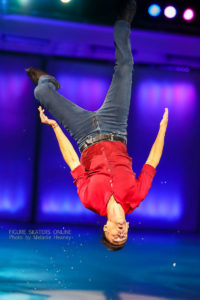 FSO: What do you still love about being on the ice, after all your years of skating and competing?
FSO: What do you still love about being on the ice, after all your years of skating and competing?
Bradley: “I think that the very interesting thing about skating, and especially when you’re in your 40s, there’s a lot of good reasons to hang up your skates and move on, but there’s just something very nostalgic about how good we are at skating versus how good we are at anything else in the world. There’s a competency that is very fulfilling. It’s also very frustrating, when you can’t do the things that you used to be able to do. But whenever I was going through problems in life, skating was the thing that I used to process it. I could put my head down and grind and work really hard on the ice, and it would help put other things in perspective. I find that in my life, when I’m struggling with one thing or another, skating is kind of my release, being able to go out and feel competent and work really hard and try to hone my skills, to whatever degree I’m capable of now. It’s just very cathartic to be able to be out there and keep hacking at it, you know?
I think that a lot of us go through different emotions with skating, but I feel like, especially as I’ve gotten older, I’m just so grateful for what the actual art of skating has done for me personally. I love getting out there — I’ll skate as long as my knees will allow.”
Stay tuned to FSO social media channels for coverage from the Scott Hamilton and Friends show on Sunday, Nov. 24!


